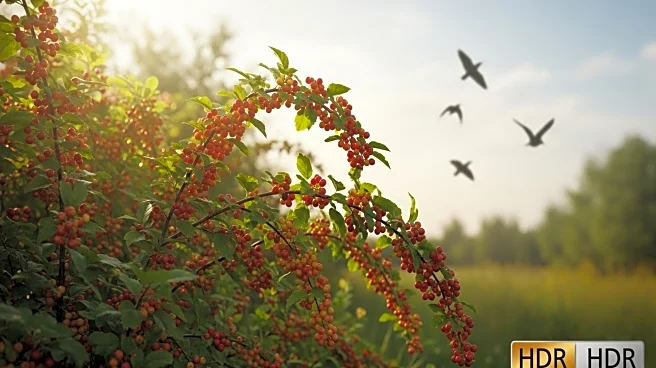What is the story about?
What's Happening?
The UK has experienced its warmest summer on record, leading to an early autumn and premature ripening of berries such as hawthorn and sloes. This shift poses a threat to migratory birds like redwings and fieldfares, which rely on these fruits for sustenance during their winter stay in the UK. The early ripening could result in food shortages for these birds, impacting their energy levels and survival. The phenomenon is attributed to changing climate conditions, which have altered traditional seasonal patterns.
Why It's Important?
The early ripening of berries highlights the broader impacts of climate change on ecosystems and wildlife. Migratory birds play a crucial role in maintaining ecological balance, and disruptions to their food supply can have cascading effects on biodiversity. This situation underscores the need for comprehensive climate strategies to mitigate such impacts and preserve natural habitats. It also serves as a reminder of the interconnectedness of climate systems and the importance of monitoring and adapting to these changes.
What's Next?
Conservationists and researchers may need to explore alternative food sources or habitat management strategies to support migratory bird populations. Continued monitoring of berry ripening patterns and bird migration will be essential to understand the long-term effects of climate change on these species. Policymakers might consider integrating wildlife conservation into broader climate action plans.
Beyond the Headlines
The situation raises ethical questions about human responsibility in addressing climate change and its impact on wildlife. It also highlights the cultural significance of migratory birds in the UK, which are part of the natural heritage and contribute to local biodiversity.


















